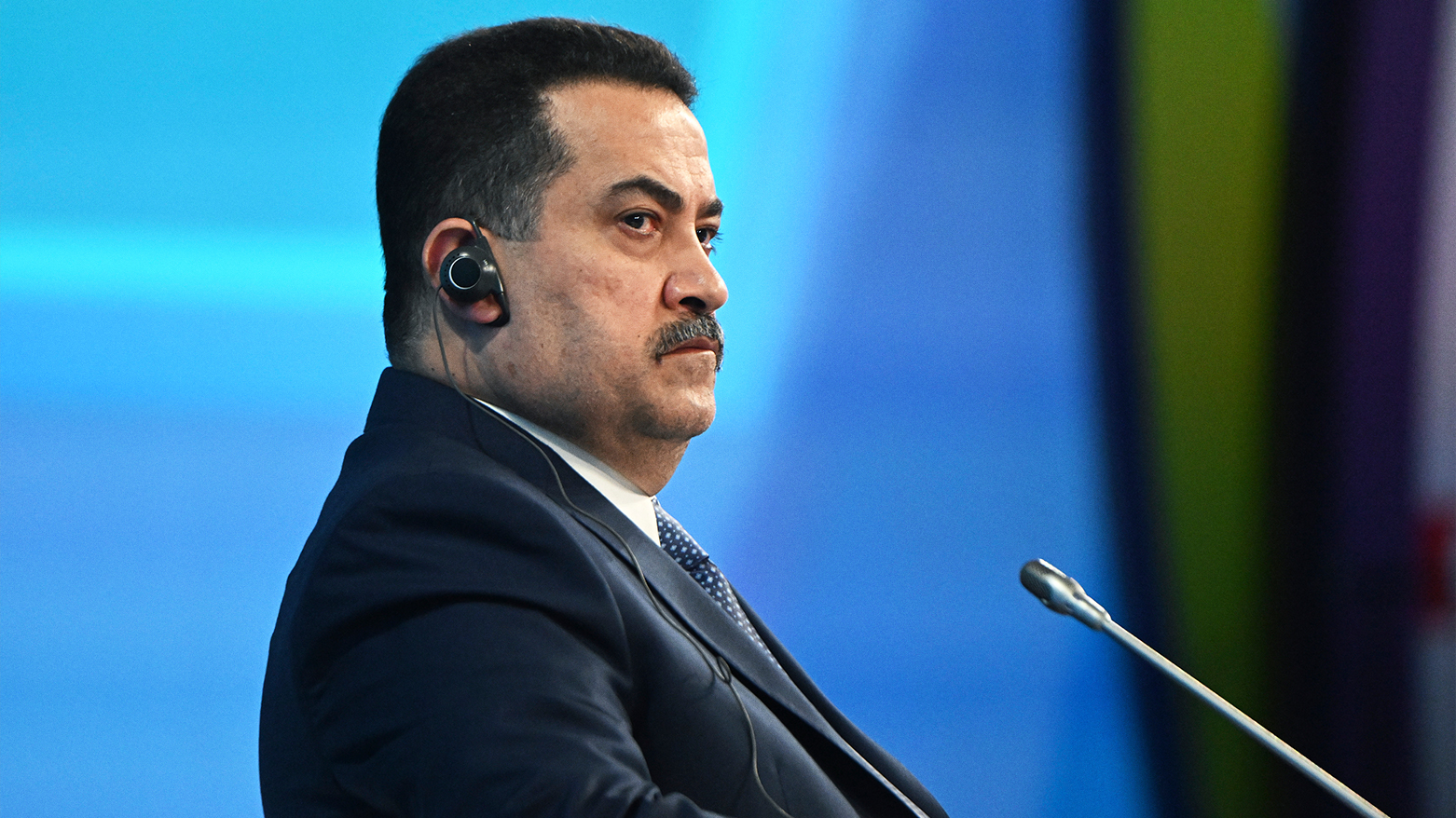U.S.-Iran Deal 'Possible,' Says Iraqi PM al-Sudani
On a potential U.S.-Iran deal, PM Sudani said, "It’s possible," noting Iran’s serious desire for an agreement. He firmly rejected claims of Iranian control, stating, “There is no Iranian management of Iraqi affairs… Iraq is not, and will not be, subordinate to anyone.”

By Kamaran Aziz
ERBIL (Kurdistan24) – Iraqi Prime Minister Mohammed Shia Al-Sudani has stated there is a "serious desire" from Iran to reach an agreement with the United States and confirmed he will run for re-election in November, in a wide-ranging interview with Asharq Al-Awsat where he detailed Iraq’s efforts to navigate regional conflicts and attract over $100 billion in investment.
Sudani emphasized that Iraq is an active regional player, not a bystander, and has successfully maintained its stability and sovereignty amid recent turmoil, including the Israeli-Iranian conflict.
Regional Diplomacy and Conflict
During the interview, Sudani confirmed that when Israel's aggression against Iran violated Iraqi airspace, his government acted to keep Iraq out of the war, a stance supported by the United States. He noted that Iraq filed a complaint with the UN Security Council and maintained a unified national position against the violation of its sovereignty.
Sudani revealed that Iraq took the initiative to exchange messages between parties to halt the conflict. While no specific requests were made by Iran, he said Tehran expressed readiness to negotiate if the aggression stopped.
He expressed concern that Israeli Prime Minister Benjamin Netanyahu might carry out further aggression to maintain his political position. On a potential US-Iran deal, Sudani said, "It’s possible," adding that his impression from meetings is that "there is a serious desire from the Iranian state to reach an agreement."
He also noted there is "no decision in Iran, either religious or official, to acquire nuclear weapons."
Following the conflict, Sudani confirmed an investigation is underway into drone attacks that damaged a radar system in Taji and caused minor damage at bases in Nasiriyah, with assistance sought from the international coalition.
Foreign Relations
The Prime Minister described Iraq's foreign policy as "Iraq First," but stressed the importance of strong regional ties. He characterized relations with Türkiye as a "significant strategic partnership," highlighting the "Development Road" project and a bilateral water management agreement.
On relations with Iran, he described a strategic partnership based on mutual interests but firmly rejected any notion of external interference. "There is no Iranian management of Iraqi affairs. Absolutely not," he stated. "Iraq is not, and will not be, subordinate to anyone."
Relations with Saudi Arabia are "at their best," with high-level coordination on regional issues and cooperation on economic projects, including electrical interconnection. He also described a strong relationship with Lebanon, focused on supporting its stability and reviving economic projects like the Iraq-Syria-Lebanon oil pipeline.
Regarding Syria, Sudani said relations are "on the right track" with ongoing security coordination against a resurgent ISIS. He noted that Iraq has offered advice to Syria on the need for an inclusive political process, drawing from Iraq's own post-2003 experience.
Domestic Affairs and Elections
Prime Minister Al-Sudani confirmed he will "definitely" run in the parliamentary elections scheduled for November. "We have a national plan and a broad electoral and political alliance. We will run in the elections in most provinces with a national - not sectarian - approach," he said.
On the domestic front, he stated that the exclusive control of weapons is an Iraqi matter and that his government has a clear plan to ensure no arms exist outside the framework of state institutions.
He touted the country's economic progress, stating that investments have surpassed $100 billion over two years. In his fight against corruption, Sudani said his government "stopped the collapse" seen in abuses like the "theft of the century," has reformed oversight bodies, and has recovered over $500 million in stolen funds. He also affirmed that the Iraqi judiciary is independent and not subject to pressure from armed factions.